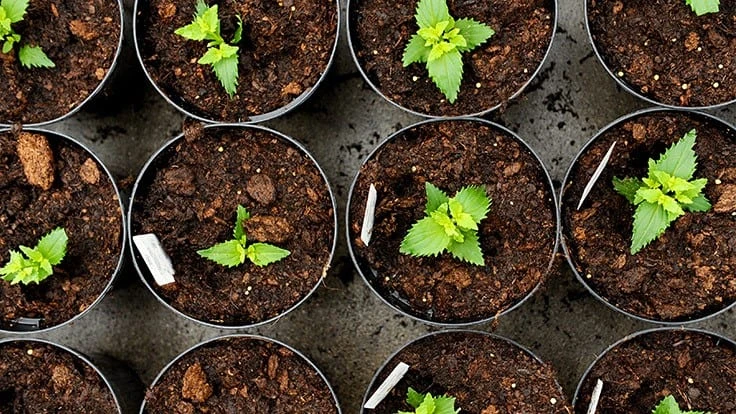
Headquartered in Newport, Minnesota, is Bailey Nurseries, an industry supplier that offers premium genetics countrywide. While the company has been recognized for its customer service, the fifth-generation family-owned business also strives to help retailers, growers and landscapers create diverse and sustainable environments by offering plants that have “unique, marketable and desirable characteristics.” It does just that with the help of its breeding methods, screening procedures, evaluations and most importantly, its propagation team.
As the current West Coast propagation manager at Bailey’s Oregon location, Jeff Stoven’s duties include managing three divisions and an entire team. He also ensures the quality of plants through careful attention and production.
“Quality is extremely important,” Stoven says. “Quality is also extremely important to our customer. “
With growing sites in five states — one in Georgia, Minnesota, Illinois and Washington, and three in Oregon — Bailey has a lot of customers to impress. But Stoven says “a key customer base is supported by production facilities in the upper Midwest region with additional customers in Oregon, which primarily services container sales west of the Rocky Mountains. And while most of its customers are independent garden centers and wholesale networks, Bailey sells through some big-box stores too.
To ensure consistent value, Stoven says patience and awareness to detail are key.
“We take our time and due diligence to ensure that every liner that we send out has the greatest chance of survival and the greatest form and attributes that you can hope for,” he says. “We're constantly tweaking, looking at grades, looking at how we stick cuttings, at how we transfer cultures in the TC lab, and how we sow seeds — there’s quite a bit of grading and sorting and analyzing that goes on in propagation to make sure that we are sending out the best liners.”
This is exactly what Stoven says growers should consider when purchasing varieties — the quality, time and effort that is put into the production. That, and a quality company.
“If I was an IGC owner, I would look for a company with a good reputation a supportive staff that commits to their product through testing and trialing — ensuring their plants are going to live up to what the back of the tag says,” Stoven says. “I think that kind of goes for whether you buy a pair of tennis shoes or a new car. You want a company with reliability and consistency from plants or any other product, and we do our best to ensure that.”
Latest from Greenhouse Management
- Anthura acquires Bromelia assets from Corn. Bak in Netherlands
- Top 10 stories for National Poinsettia Day
- Langendoen Mechanical hosts open house to showcase new greenhouse build
- Conor Foy joins EHR's national sales team
- Pantone announces its 2026 Color of the Year
- Syngenta granted federal registration for Trefinti nematicide/fungicide in ornamental market
- A legacy of influence
- HILA 2025 video highlights: John Gaydos of Proven Winners





